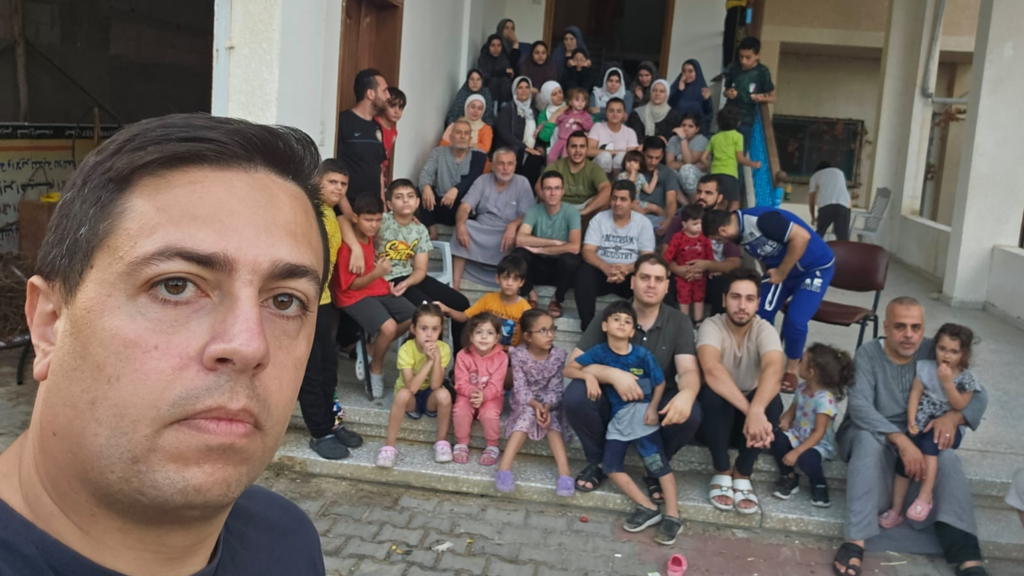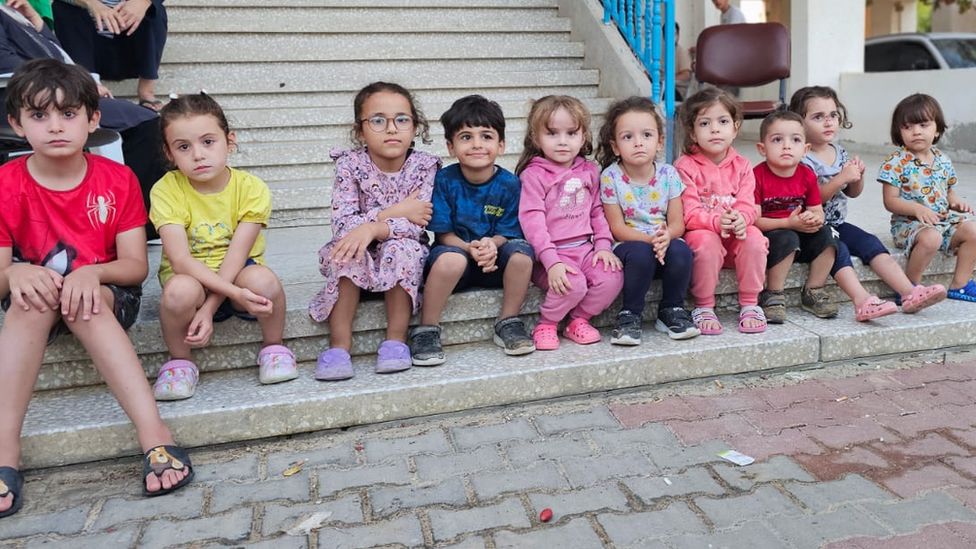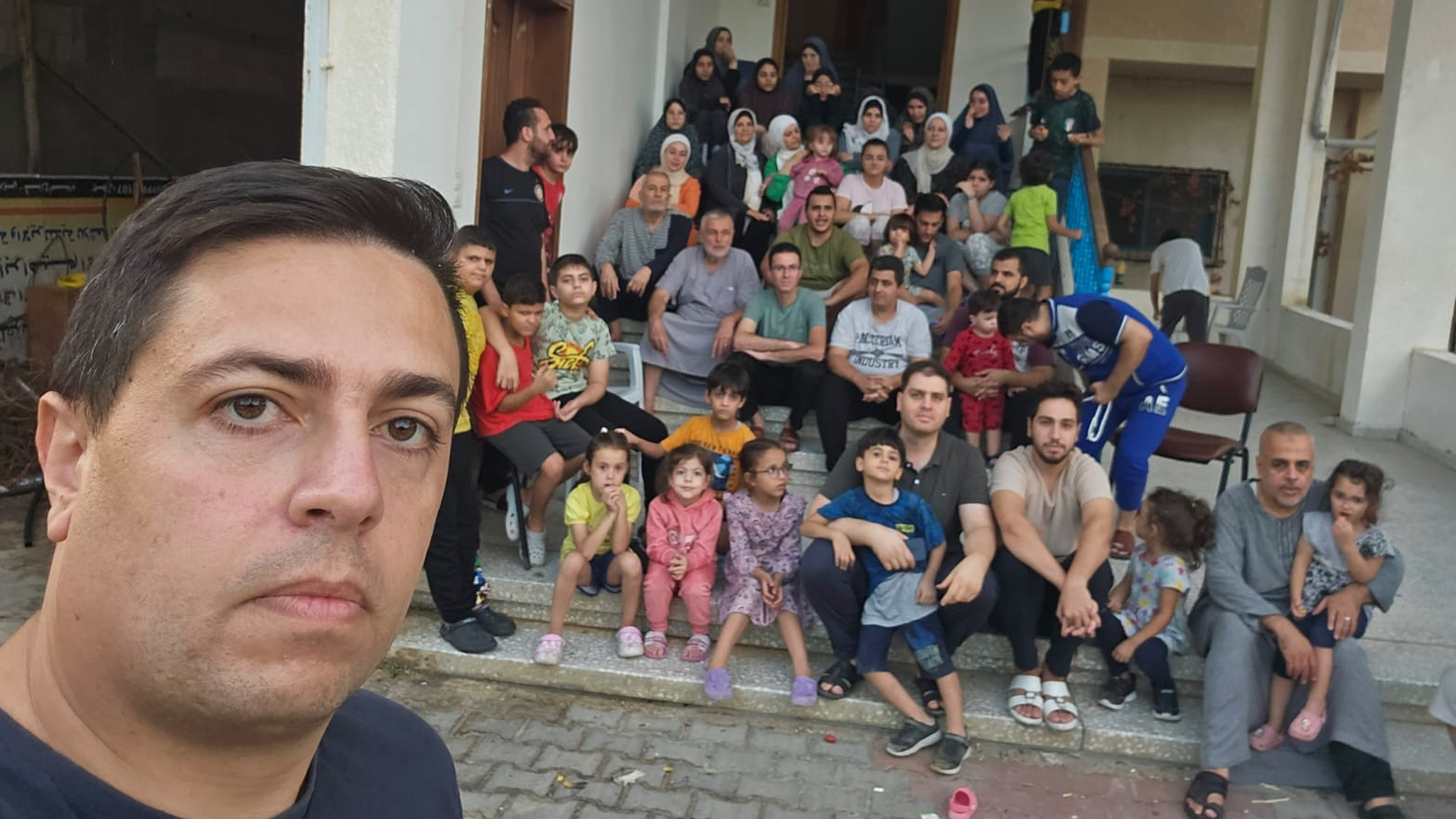
Ibrahim AlAgha and his wife Hamida had been enjoying an extended holiday in Gaza when Israeli air strikes of the territory began.
The couple, who are Irish citizens, had wanted their three Dublin-born children to meet their relatives and learn about the language and culture.
But instead of the relaxed family gatherings they had expected, the family had to contend with strikes and explosions.
“It was… constant bombing, bombing, bombing and the house shaking”, he says.
A couple of weeks before they were due to return to Ireland, Israel launched retaliatory strikes on Gaza after an attack by Hamas gunmen killed at least 1,300 people. So far, 3,300 people in Gaza have also been killed.
When Israel told 1.1 million people to head south ahead of an expected ground invasion, Ibrahim’s family packed up their belongings in their apartment in Gaza City and left too. They took shelter in Ibrahim’s parents’ house in the southern city of Khan Younis.
They were joined by relatives and friends who were also trying to flee, and the house is now home to 90 people.
“I would never say no to anybody”, Ibrahim says.
Life for 90 in a four-bedroom home is not easy. The group try to sleep in shifts, with two to a mattress. Ibrahim, an engineer, removed the windows to prevent glass from injuring people in the event of a possible drone attack. But with food, water and electricity supplies blocked in Gaza, no-one can really relax.
“From the time we wake up to the time we sleep, we’re just trying to survive,” he says.

Some of the group try to go out every day to see if canned food is being distributed. Though they can bake bread in a neighbour’s wood oven with their dwindling supplies of wheat and water, there is not enough for more than one meal a day.
The situation is especially hard on the 30 children – 10 of whom are under five.
“They always ask for food and water, and we’re trying to get them as much as we can… It’s very difficult.
“Elderly people, we can bear it a bit, we can stay hungry, but when children are asking for food we can’t say no to them.”
Ibrahim worries about the health of the group, which includes a pregnant woman and an elderly diabetic man who he says will run out of medicine soon. If anyone gets seriously ill, the group will not be able to get them to the hospital.
‘My son is really worried’
And Ibrahim’s own children have been deeply affected by the events. Omar and Eileen – aged just four and three, get frightened when they hear a strike or an explosion, and Ibrahim and his wife try to distract them by playing games.
At night, the commotion can interrupt their sleep and they wake screaming. But Ibrahim says his eight-year-old, Sami, is most troubled by the situation and is scared that drones will hit him.
“He understands what’s going on… he can hear and feel the frustration we are going through and he is really worried.”
While conditions in Gaza worsen, Ibrahim and his family have been trying their best to get back to Dublin. On Saturday, they took a “very risky” journey to reach the Rafah crossing – one of the two land routes out of the Gaza Strip.
But when they got there, Ibrahim says they received a message from the Irish Embassy telling them to turn back. Now he fears he might not have enough fuel to be able to reach the border again if the crossing – which is currently closed – reopens. Even if he does have fuel, he may lose communication with the embassy if phone networks die.
“I’m starting to lose hope that [an evacuation] will happen”, he says.
After an attack on the Al-Ahli Arab hospital in Gaza City on Tuesday, which is feared to have killed hundreds, Ibrahim says no-one in their crowded Khan Younis house could sleep.
“We are really fearing for our lives… there’s no limits… anyone, anywhere could be targeted.
“Things are getting worse every day.”


